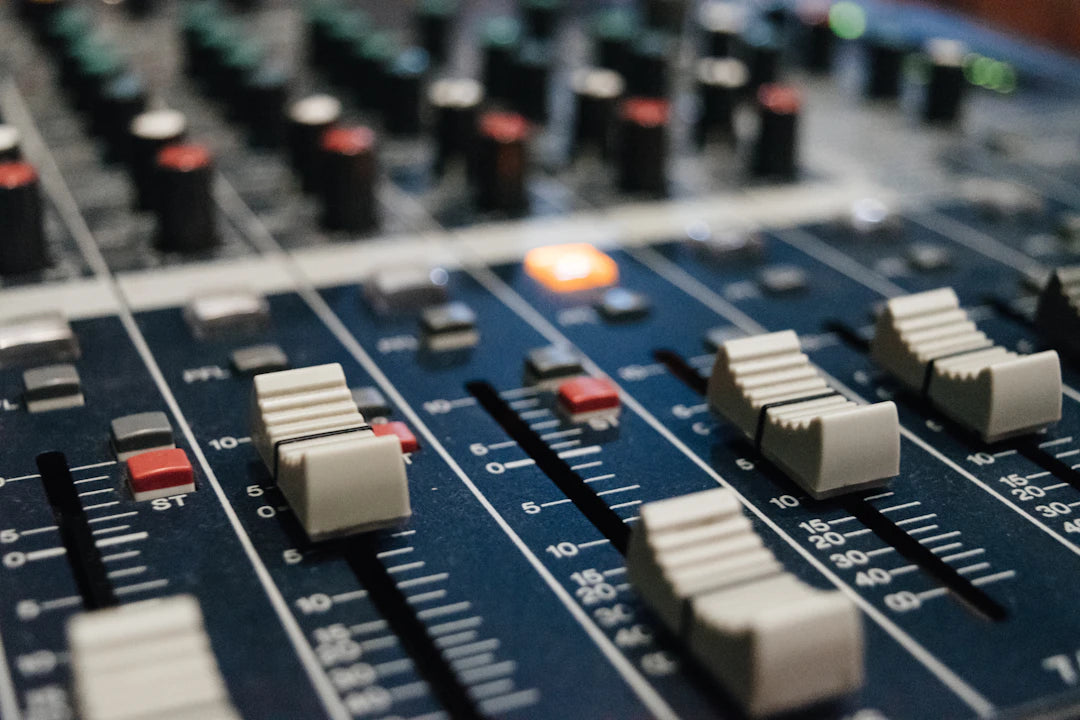Frequently Asked Questions
1. What factors should seniors consider when choosing audio equipment?
2. Why is clarity in audio important for seniors?
3. What are some user-friendly features to look for in audio equipment for seniors?
4. How can the listening environment affect audio quality for seniors?
5. What should seniors do before purchasing audio equipment?
Choosing the right audio equipment can be a crucial decision for seniors looking to enhance their listening experience. Whether it's enjoying music, catching up on favorite podcasts, or watching television, the right audio gear can significantly impact their enjoyment and day-to-day life. In this blog, we will explore what factors to consider when selecting audio equipment specifically tailored for seniors, ensuring that they gain the best auditory experience possible.
Understanding Hearing Needs
As we age, our hearing abilities often change. This shift can make it difficult for seniors to enjoy the audio content they love. Here's a closer look at the hearing needs of seniors and how it influences audio equipment choices.
Assessing Hearing Loss
Many seniors experience varying degrees of hearing loss. This can range from mild to profound, significantly affecting their quality of life. When selecting audio equipment, it’s essential to consider how this hearing loss impacts sound perception. It might be helpful to:
- Consult a hearing specialist for an assessment.
- Identify specific frequencies that are harder to hear.
- Understand whether assiting devices, like hearing aids, are in use.
Frequency Range and Clarity
Older adults may require audio equipment that emphasizes clarity, especially in the mid-range frequencies where speech sounds occur. Look for devices that can reproduce clear vocals, making it easier to follow conversations on TV shows or movies.
Features That Matter
When shopping for audio equipment, certain features can make a device more accessible and enjoyable for seniors.
User-Friendly Controls
Audio devices with simple, easy-to-understand controls are essential. Seniors may struggle with small buttons or complex interfaces. Here are some aspects to look for:
- Large, clearly labeled buttons.
- An intuitive remote control, ideally with few buttons.
- Voice commands or simplified touchscreen options.
Bluetooth and Wireless Connectivity
Wireless audio devices can be a great option for seniors, minimizing cable clutter while providing flexibility. Features to consider include:
- Bluetooth compatibility for connecting to smartphones or tablets.
- Long battery life to avoid frequent recharging.
- Easy pairing processes for quick setup.
Types of Audio Equipment
Understanding the types of audio equipment available can help seniors make informed choices that enhance their listening experience. Here’s a breakdown of the options.
Headphones vs. Earbuds
Headphones and earbuds each have their pros and cons. Here’s how they stack up:
- Headphones: Typically larger, providing better sound isolation and comfort, especially for long listening sessions.
- Earbuds: Lightweight and portable but may be less comfortable for extended use.
Wireless Speakers
Wireless speakers are excellent for creating a shared listening experience, allowing seniors to enjoy music or television from anywhere in a room. Key features to consider include:
- Room-filling sound quality.
- Simple connectivity options.
- Easy mobility for different usage areas.
Enhancing the Listening Experience
Beyond just the audio devices themselves, several additional elements can enhance the listening experience for seniors.
Setting Up the Environment
The listening environment can dramatically influence sound quality. Here are a few considerations:
- Minimize background noise: Ensure the space is quiet and conducive to listening.
- Optimizing speaker placement: Position speakers at ear-level for better audio coherence.
- Using soundproofing materials: Curtains or carpets can dampen echoes and enhance sound clarity.
Utilizing Assistive Listening Devices
Assistive listening devices (ALDs) can bridge the gap for seniors with significant hearing loss. These devices come in various forms, all designed to increase sound clarity and volume directly to the ear. Considerations include:
- TV listening devices that send audio directly to headphones or aids.
- FM systems that transmit sound for better clarity in social settings.
- Loop systems that connect directly into hearing aids for seamless sound.
Making the Right Choice
With numerous audio options available, choosing the right equipment is about more than just sound quality—it's about meeting individual needs and preferences. Here are some tips for making the right choice:
Testing Before You Buy
Wherever possible, seniors should test audio equipment before committing to a purchase. This can include:
- Visiting stores with a demo area to try out headphones or speakers.
- Asking for recommendations from family or friends who have experience with specific devices.
- Reading reviews from other seniors to see what worked for them.
Budget Considerations
Audio equipment can range from budget-friendly options to high-end systems. Setting a budget beforehand can help narrow down choices and keep spending in check. Factors to weigh include:
- Long-term investment versus short-term gain.
- Warranty and support options for the equipment.
- The potential need for additional accessories.
Bringing It All Together
Choosing the right audio equipment for seniors is a journey that encompasses understanding unique hearing needs, exploring device features, and creating a personalized listening environment. The goal is to empower seniors to enjoy their favorite audio experiences fully. Through careful consideration of their hearing requirements and personal preferences, seniors can find equipment that enhances their lifestyle, connects them with cherished memories, and allows them to engage with the world of sound to the fullest. Embrace this adventure in sound, and watch as it enriches daily life with every note and word!

